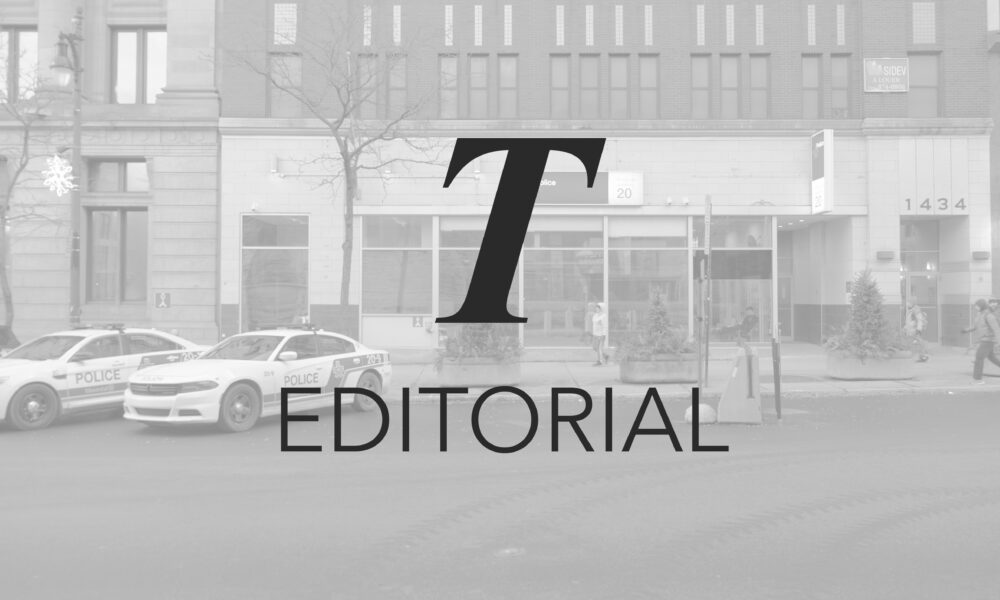Announced on Nov. 15, Montreal’s 2024 budget raises serious concerns regarding the skewed allocation of funds accompanying the 3.5 per cent spending increase. The municipal government allocated the majority of the budget to investments in public transit––which is receiving a budget increase of $48.4 million, bringing it up to $715.6 million for the year––and the Service de police de la Ville de Montréal (SPVM)––whose budget will be increased by $35 million to $821 million. This tax hike however does not consider houselessness, alternatives to policing, and accessibility widely. Just shy of $7 billion, the budget will result in a 4.9 per cent hike in taxes for Montreal homeowners––an even higher rate than last year’s 4.1 per cent increase. Although raising taxes allows the government to provide vital public services, the budget’s allocation of funds grossly misuses Montrealers’ money. Despite some potential benefits for citizens, the budget not only fails to commit to accessible public services but also further empowers the abusive SPVM.
Undoubtedly, the drastic increase in police funding is the most dangerous element of the new budget. Much of the police budget increase will go towards the hiring of 225 more police officers. The increase supports the misconception that more hiring will decrease overtime and stress, thereby improving policing practices. This overlooks the reality that the root problem resides within the policing institution itself, and that simply addressing officers’ working hours will not provide a solution. Hiring more officers contributes to over-policing wherein officers assert discretionary power under a systemically racist institution by disproportionately targeting Black and Indigenous peoples, and other racialized communities. In dialogue with mental health professionals and social workers, the city must invest in alternative methods of conflict de-escalation and care.
Montreal does not need more police officers. This decision willfully misinterprets crime’s root causes, doubling down on the enforcement system rather than taking real action to address the underlying issues. By over-investing in policing, the Montreal government deprives other social services––such as safe injection sites, affordable housing, and shelters––of the necessary funding to provide for communities.
The institution of policing as a whole fails to viably support many marginalized groups, including queer people, people suffering from mental illness, and sexual assault survivors—who often face violence from the police. For many officers, joining the police force represents power and control, contributing to the dangerous legacy and practices of the SPVM. When reckoning with the history of policing in Canada and North America, we must note its roots in slavery and settler colonialism. Police aim to control every aspect of individual people’s lives, producing regulated citizens. As such, police take autonomy away from individuals, imposing on communities and violently punishing those who do not conform.
One of the more positive aspects of the budget is the allocation of $34 million to provide free OPUS cards for senior citizens––an integral accessibility service for a well-planned city. However, this does not address transportation issues facing many other communities. Students, especially those who commute to school, face excessively high OPUS prices. Moreover, the recent talks about severely cutting certain transit services, including closing the Metro at 11 p.m., stopping intercity buses at 9 p.m., and withdrawing trains from the Orange, Green, and Yellow lines should concern Montrealers. These changes would drastically affect students and the general Montreal community, implementing devastating barriers to safe and accessible transportation. Although this funding matters, it cannot come at the expense of the metro’s accessibility to vulnerable populations.
Montreal’s municipal government must re-allocate this budget to other services that work toward addressing the root issues causing crime and increasing the accessibility of public services for everyone. Premier Legault must immediately revoke his denials of systemic racism and prejudice in Quebec to take tangible steps toward redressing the inequalities that marginalized communities face every day. In this process, McGill students must lead the charge by getting involved in the communities around them, listening, learning, and taking action.









